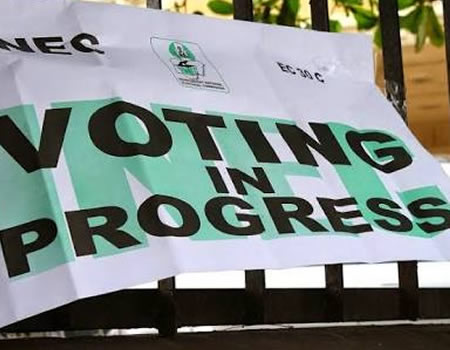THE Federal High Court sitting in Umuahia, Abia State, on Friday ordered the removal of Section 84 (12) of the newly amended Electoral Act which barred political appointees from contesting in primaries and voting as delegates without first resigning their positions.
President Muhammadu Buhari had urged the National Assembly to delete Section 84(12) of the amended Electoral Act, stating that it violated the constitution and also breached the rights of government appointees.
The president had written a letter to the National Assembly seeking amendment by way of deleting the provision, an amendment the Senate rejected in plenary.
However, in suit number FHC/ UM/CS/26/2022 filed by a lawyer, Nduka Edede of Action Alliance, the plaintiff asked the court to declare the section null and void.
The court, in its judgment delivered by Justice Evelyn Anyadike, ruled that the section was unconstitutional, invalid, illegal, null, void and of no effect whatsoever, and should be struck off as it cannot stand as it is in violation of clear provisions of the constitution.
ALSO READ FROM NIGERIAN TRIBUNE
The judge also ordered the Attorney General of the Federation to forthwith delete the said Subsection 12 of Section 84 from the body of the Electoral Act, 2022. Counsel to the plaintiff, Emeka Ozoani, told newsmen after the judgment that by this judgment, the National Assembly has been stopped from making any amendments to the section saying the import of this judgment is that Section 84(12) of the Electoral Act is no longer in existence or part of the Electoral Act.
Meanwhile, the office of the AGF and Minister of Justice said on Friday that it will give effect to the Court judgment “in line with the dictates of the law and the spirit of the judgment.
“The judgment of the Court will be recognized by the government printers in printing the Electoral Act,” the Attorney General’s office said in a statement.
“The Act will be gazetted factoring the effect of the judgment into consideration and deleting the constitutionally offensive provision accordingly.
“The provision of Section 84(12) of the Electoral Act 2022 is not part of our law and will be so treated accordingly.
“This is in line with the dictates of chapter 7, Part 4, Section 287 of the 1999 Constitution of the Fed Rep of Nigeria (as amended) on enforcement of decisions that make it a point of obligation on all authorities & persons to enforce the judgment of d federal High Court, etc,” the statement said.
A senior lawyer (name withheld) told Saturday Tribune on Friday that it was strange that the Attorney General issued a compliance statement almost immediately after the judgement was given unlike what obtained in the recent judgement removing Ebonyi State governor, Dave Umahi.
Meanwhile, Mr Femi Falana, SAN in a reaction declared that the judge erred in his decision.
“With respect, the learned trial judge fell into a great error. Sections 66 (1) (f), 107(1) (f),137 (1) (f) and 182 (1) (f) of the Constitution relied upon by his lordship require persons employed in the public service of either the Federal Government or State Governments. Specifically, each of the aforesaid sections provides that
“No person shall be qualified for election into the Senate or House of Reps if: (f) he is a person employed in the public service of the Federation or of any State and has not resigned, withdrawn or retired from such employment 30 days before the date of election.”
“By virtue of section 318 of the Constitution, political appointees are not included in the list of persons employed in the public service. To that extent, section 84 (12) of the Electoral Act was annulled on a very faulty ground.
“No doubt, the Judge would have dismissed the case if his attention had been drawn to the cases of DADA v. ADEYEYE (2005) 6 NWLR (Pt. 920) 1 at 19 ASOGWA v. CHUKWU (2003) 4 NWLR (Pt. 811) 540 OJONYE V. ONU & ORS (2018) LPELR-44223) where the appellate Courts have held that political appointees or political office holders are not public servants as provided for under the Constitution,” he said.






